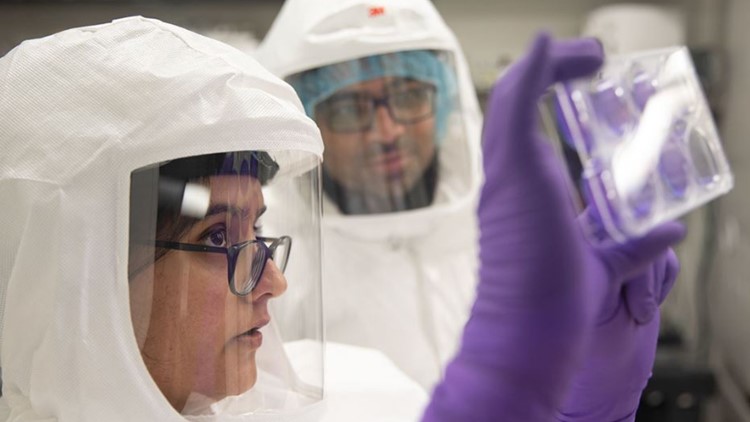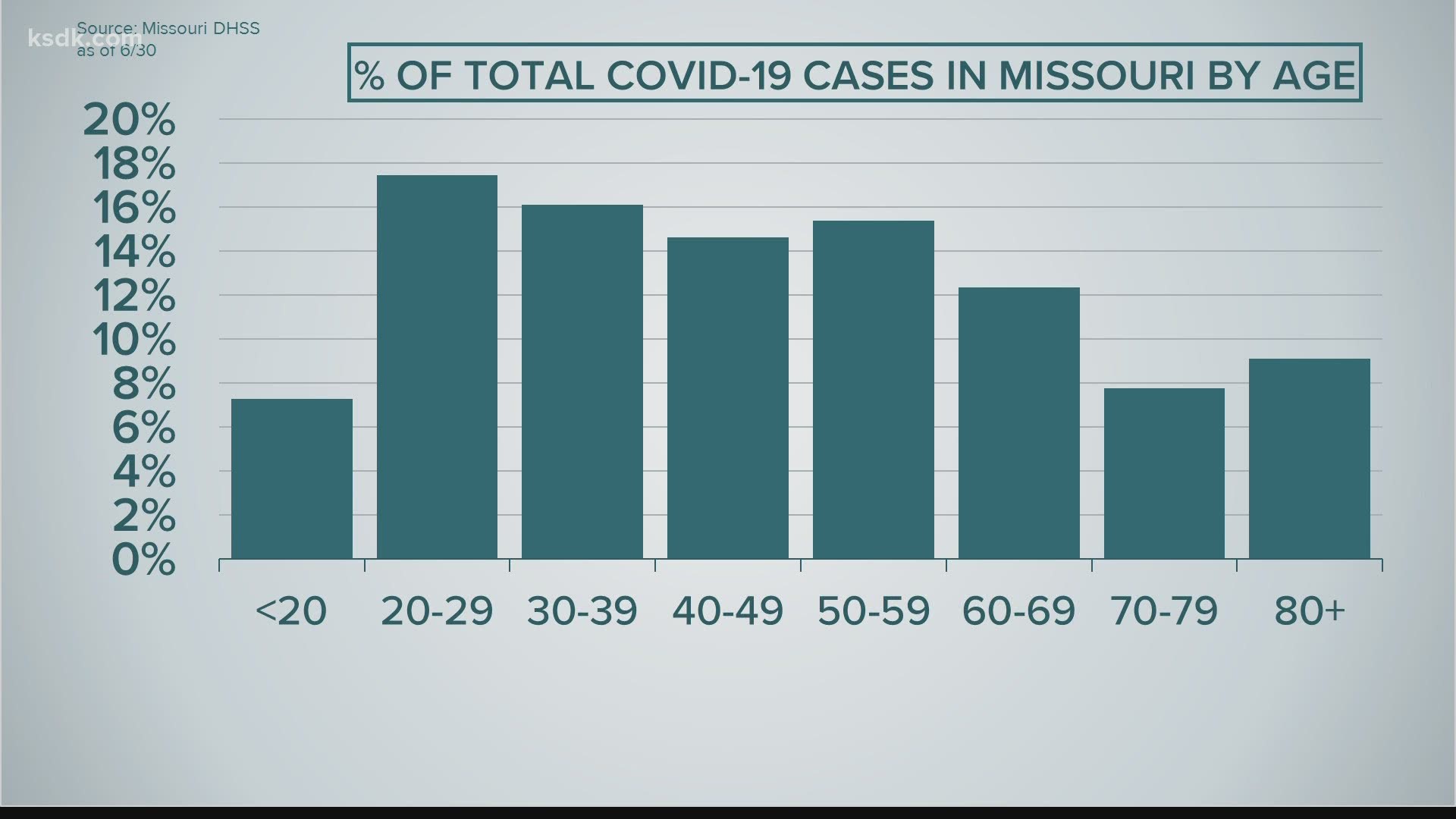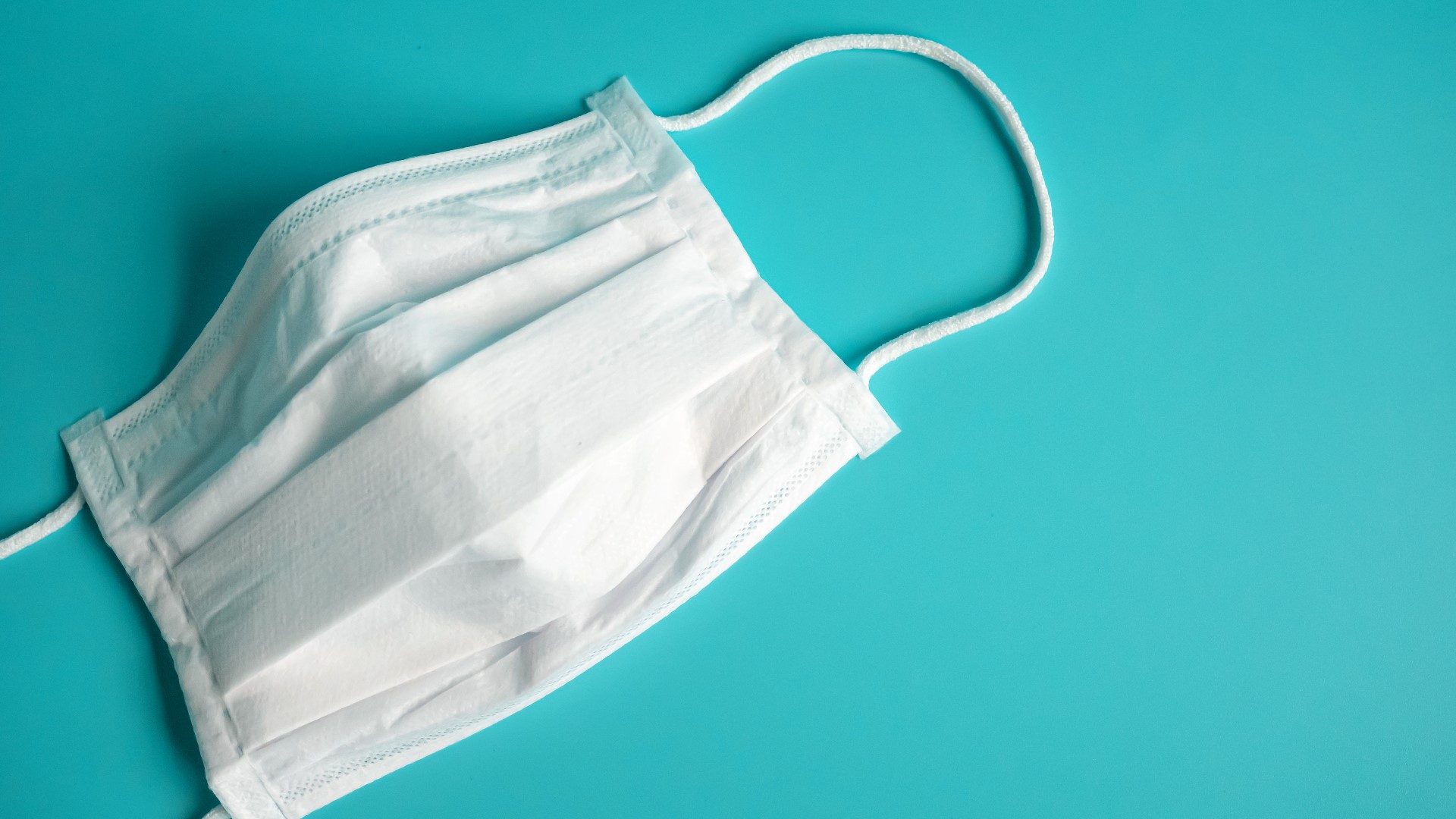ST. LOUIS — A doctor at the Washington University School of Medicine has set up a screening platform for researchers in an effort to find drugs that work against COVID-19.
The platform was set up by Dr. Jennifer A. Philips, associate professor of medicine and co-director of the Division of Infectious Diseases.
The first step to finding antiviral drugs is to screen chemical compounds for their inability to inactivate the virus in a dish, the School of Medicine said in a press release. The problem is that many researchers can't access high-security biosafety labs where they can work with dangerous microbes such as COVID-19.
That's why Philips decided to turn over part of her biosafety level 3 laboratory, which usually focuses on tuberculosis, to COVID-19 experiments. With help from Professor of Medicine Dr. Michael S. Diamond as well as Washington University’s Institute of Clinical and Translational Sciences, the lab's researchers are now offering chemical compound screening to the biomedical community at large.
“In the beginning of the outbreak, a lot of people were screening compounds that are already approved by the FDA for other conditions and could be quickly repurposed to treat COVID,” Phillips said in the release.
“Now those screens have been done, and there are not a large number of promising candidates. So we’re still looking for more possibilities. There are so many scientists who may have insight into some aspect of cell biology related to their particular expertise that could be relevant to finding an antiviral for COVID, but they don’t necessarily have the expertise or the facilities to explore it. If they have a good reason for thinking a particular molecule might work against COVID, we can test it for them.”
So far, no antiviral drugs have yet shown that they can quicken recovery or prevent severe illness in people who aren't sick enough to be hospitalized, the school said.
The only current antiviral drug authorized by the FDA to treat coronavirus is remdesivir, which must be administered by IV and is only recommended for hospital patients. The drug has been shown to shorten the duration of the illness by a few days. Researchers believe an antiviral drug that could be used before a patient needs to be hospitalized could be more effective.
“We’ve found compounds that look promising for further optimization, and they have also now been identified in other screens, which is encouraging,” Philips said. “Given the ICTS funding, we have the capacity to screen more compounds now, so we’re hoping that more people will reach out to us with suggestions. We need to capture the ingenuity of the whole scientific community to defeat this virus.”
To submit a request for screening, investigators can fill out an online form here.




